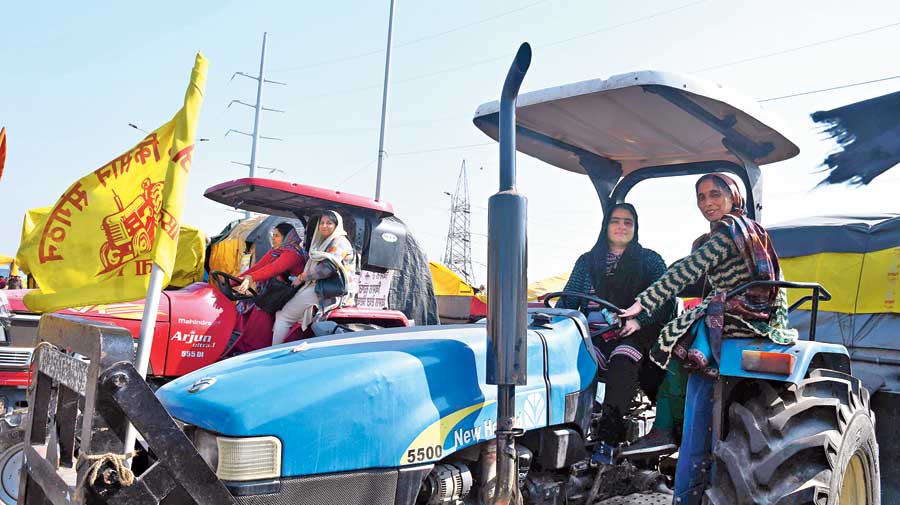The protesting farmers on Thursday rejected the Centre’s proposal to suspend the implementation of the three contentious laws for 18 months, taking the stand that the 143 “martyred” farmers had died seeking repeal and not such half-measures.
“The SKM pays homage to the 143 farmers who have been martyred in this movement so far. These companions are separated from us while fighting this mass movement. Their sacrifice will not go in vain and we will not go back without the repealing of these farm laws,” the Samyukta Kisan Morcha said in a statement.
The decision by the SKM, which has been spearheading the farmers’ protest, was announced on Thursday night after three rounds of meetings over the 24 hours since the offer had been made.
This being the first concrete offer from the government, it was considered with all seriousness and saw some farmer leaders inclined to accepting it.
But, sources said, even they were clear that it could be accepted only if the government enacted a law guaranteeing a minimum support price (MSP) for 23 crops.
Repeal of the three laws and a legally guaranteed MSP have been the farmers’ two main demands. It was the second demand that took the movement beyond Punjab and Haryana.
The offer was first discussed on Wednesday night within the All India Kisan Sangharsh Coordination Committee, which had given the “Dilli chalo” call that brought thousands of farmers to Delhi’s borders on November 26.
On Thursday morning, another round of discussion took place among the farmer unions from Punjab, after which the SKM met.
All day the union leaders maintained a studied silence. By evening, when the SKM remained closeted, Rakesh Tikait of the Bharatiya Kisan Union from Uttar Pradesh said the offer had been rejected.
By this time, Shingara Singh Mann of the BKU-Ekta (Ugrahan) — the largest farmer organisation from Punjab, which has brought the highest number of people to picket the Tikri border — too had made it known that the offer was unacceptable.
Mann said that suspension of the laws would mean they would be hanging over the farmers’ heads like a sword. Other union leaders too questioned the logic in having the laws in the statute books if they were not to be implemented.
“Why is the government not repealing them if it is sincere?” was the refrain.
Another consideration was that the movement was on the ascendant with more unions joining in from across the country. Added to this was the enthusiasm in Punjab for the tractor rally planned in Delhi on Republic Day.
The farm union leaders have more than once over the past two months maintained that while they are the ones attending the talks with the government, it is not them but the mass of farmers who are leading the movement.
“What if we agree to the proposal and a large section of farmers do not? That would divide and weaken this movement, and we will not be able to mobilise people on this scale for a long time in that eventuality,” a union leader said.
Less than an hour after the SKM announced its decision, BKU (Siddupur) leader Jagjit Singh Dallewal told reporters at the Singhu border that the meeting was still on and that no decision had been taken.
However, another union leader who was at the meeting said that what was being discussed was related to differences that had cropped up between the Rashtriya Kisan Mazdoor Mahasangh leader Shiv Kumar “Kakkaji” and Haryana farm leader Gurnam Singh Chaduni.
Delhi police have requested the SKM not to conduct the planned January 26 “kisan parade” in Delhi but the farmers have reiterated that they would hold the tractor rally on the Outer Ring Road after the official Republic Day parade.
The union leaders have maintained that the rally would be peaceful and that they know that any form of violence would be counterproductive and weaken the movement.
The SKM will formally communicate its decision to the government on Friday, when the eleventh round of talks is scheduled.
Agriculture minister Narendra Singh Tomar had been hopeful of resolving the issue on Friday. But the farmers — while conceding that the offer is a positive step — continue to bristle at the absence of empathy, the name calling, the use of force to stop their movement, and the use of the National Investigation Agency to scare them.










